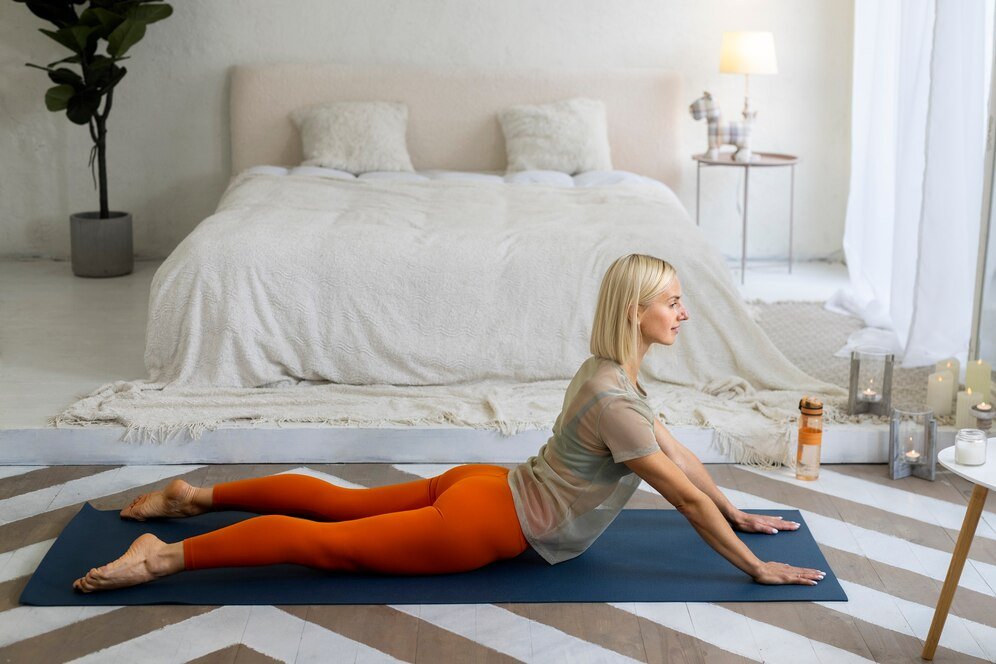Introduction
Combining good sleep with a regular yoga practice creates a synergy that enhances physical, mental, and emotional well-being. This holistic approach to health yields numerous benefits.
Strengthening the Immune System
Good sleep and yoga both contribute significantly to a robust immune system. During sleep, the body produces cytokines, which are proteins essential for fighting off infections, inflammation, and stress. A lack of sleep disrupts the production of these immune-boosting agents, leaving the body vulnerable to illness. Yoga, meanwhile, reduces stress levels and improves circulation, enhancing immune function and allowing the body to better defend itself against pathogens.
Combining yoga and sleep not only helps the immune system ward off illness but also reduces the chances of developing chronic diseases. Studies suggest that those who practice yoga and maintain regular sleep patterns are less likely to suffer from high blood pressure, heart disease, and other immune-related conditions.
Improving Cognitive Function and Emotional Health
Sleep is crucial for cognitive functions such as memory, learning, problem-solving, and emotional regulation. Yoga complements these benefits by increasing mental clarity and focus, helping practitioners better manage stress and remain calm in the face of challenges. Regular sleep paired with yoga practice enables the brain to process and retain information more effectively, contributing to higher levels of productivity and creativity.
Emotionally, sleep and yoga are powerful tools for resilience. When we’re well-rested, we’re more likely to feel optimistic, motivated, and less prone to anxiety or irritability. Yoga’s emphasis on mindfulness and body awareness can also help us navigate our emotions more healthily, reducing the frequency and intensity of mood swings.

Longevity and Overall Wellness
Studies have linked both quality sleep and consistent yoga practice to increased longevity. Quality sleep enables cellular repair and supports bodily functions that reduce the risk of chronic conditions. Yoga, through its emphasis on physical activity and stress reduction, promotes heart health, lung capacity, and joint flexibility, all of which are critical factors for long-term health.
By combining yoga and good sleep, individuals can create a foundation for a healthy lifestyle that may add years to their lives. Beyond longevity, this approach fosters a quality of life filled with energy, mental clarity, emotional stability, and physical resilience.
Challenges and How to Overcome Them
Despite the profound benefits, it can be challenging to establish a consistent routine with yoga and sleep practices. However, a few strategies can help overcome these obstacles.
Difficulties in Establishing a Routine
Starting a yoga and sleep regimen may feel overwhelming at first, especially if you’re juggling a busy schedule. The key to overcoming this challenge is to set realistic goals and start small. Begin with just 5 to 10 minutes of gentle yoga stretches before bed or incorporate one or two calming breathing exercises. As these habits become more natural, you can gradually extend the time or add more poses.
Consistency is key, so try to go to bed and wake up at the same time every day. Setting an evening routine can signal to your body that it’s time to wind down, making it easier to fall asleep. It may take a few weeks to establish this routine, but persistence will help these practices become a natural part of your daily life.
Managing Stress and Anxiety
Stress and anxiety are common barriers to good sleep and can also make it challenging to enjoy the full benefits of yoga. If stress prevents you from sleeping well, consider incorporating specific stress-relieving yoga poses such as Forward Fold, Cat-Cow, or Corpse Pose into your evening routine. Additionally, meditation and deep breathing exercises help calm an overactive mind, making it easier to relax and prepare for sleep.
For those dealing with high levels of anxiety, focusing on yoga poses that activate the parasympathetic nervous system can be especially beneficial. These poses and techniques promote feelings of calmness and stability, helping to ease tension and reduce the impact of anxiety on sleep.
Conclusion: Embracing Yoga and Quality Sleep for Health
Yoga and sleep are two practices that offer extensive health benefits and, when combined, create a solid foundation for overall wellness. From improving immune function and cognitive abilities to enhancing emotional stability and longevity, a balanced approach involving both yoga and sleep can transform your life.
By dedicating time to both practices, you can achieve better health, improve your quality of life, and establish a sustainable path to long-term wellness. If you’re looking for simple, effective ways to feel more energized, reduce stress, and enhance your physical and mental well-being, consider prioritizing yoga and sleep. With consistency and dedication, you can unlock a happier, healthier, and more balanced life.
Frequently Asked Questions (FAQs)
FAQ 1: Can yoga alone improve my sleep quality?
Yes, yoga can significantly improve sleep quality by reducing stress and relaxing the body. Specific yoga poses and breathing exercises help calm the nervous system, promoting better sleep. However, the benefits are most effective when combined with other healthy sleep habits, such as maintaining a consistent sleep schedule and creating a relaxing bedtime routine.
FAQ 2: What types of yoga are best for relaxation?
For relaxation, gentle and restorative forms of yoga such as Hatha, Yin, and Restorative Yoga are highly effective. These practices focus on slow, gentle movements and deep breathing, making them ideal for promoting relaxation and preparing the body for restful sleep.
FAQ 3: How long should I practice yoga daily for better sleep?
Practicing yoga for as little as 10-15 minutes each day can make a difference in your sleep quality. Ideally, try to include a few calming poses or breathing exercises in your evening routine to help signal to your body that it’s time to relax and prepare for sleep.

FAQ 4: Can I do yoga before bed, or will it energize me?
Yes, you can do yoga before bed, especially if you choose calming, gentle poses. Avoid vigorous or fast-paced yoga styles, as they can energize you. Instead, focus on slow stretches and deep breathing exercises that relax your muscles and mind, preparing your body for restful sleep.
FAQ 5: What should I avoid before bedtime to ensure quality sleep?
To ensure quality sleep, avoid stimulants such as caffeine and nicotine in the evening. Try to reduce screen time at least an hour before bed, as the blue light from screens can interfere with melatonin production, making it harder to fall asleep. Additionally, avoid heavy meals close to bedtime, as digestion can disrupt your sleep. Instead, consider a relaxing pre-sleep routine that may include yoga, a warm bath, or reading a book.
